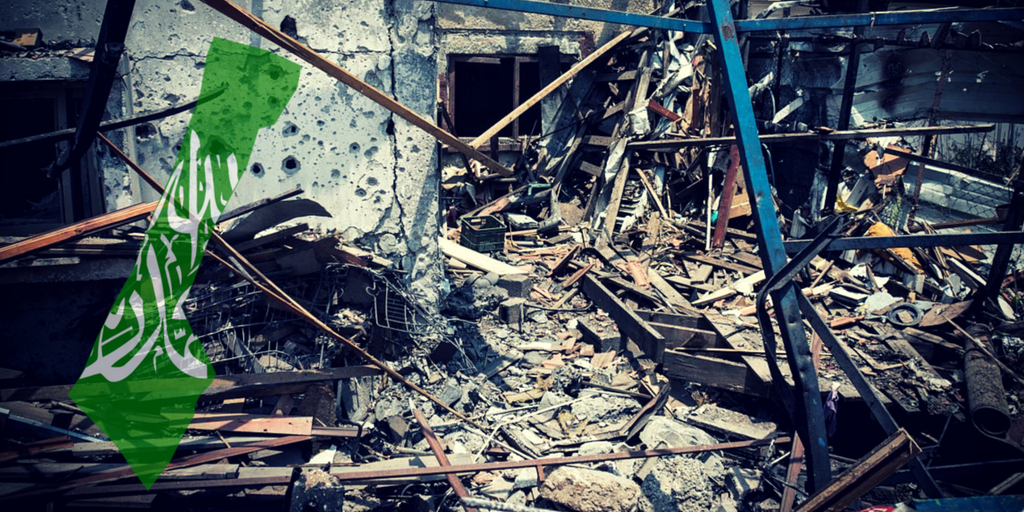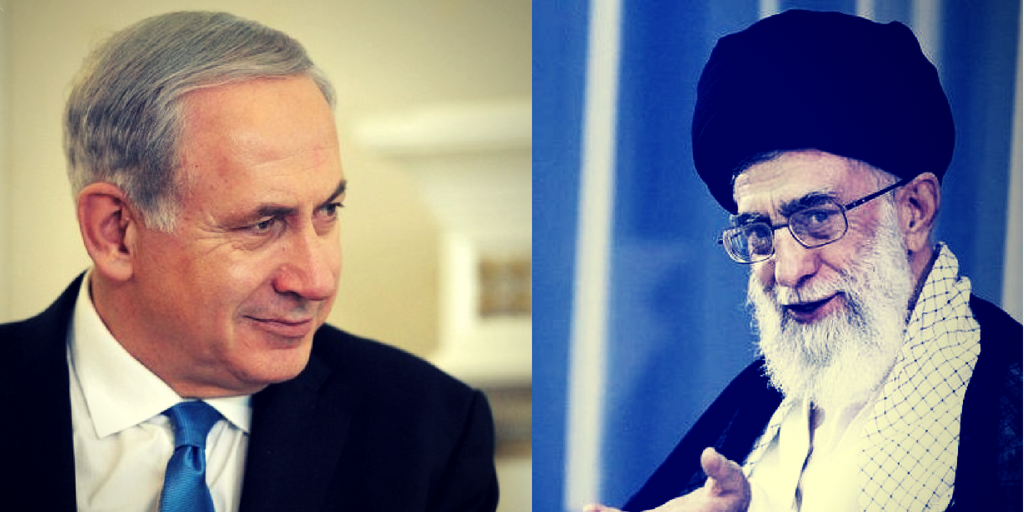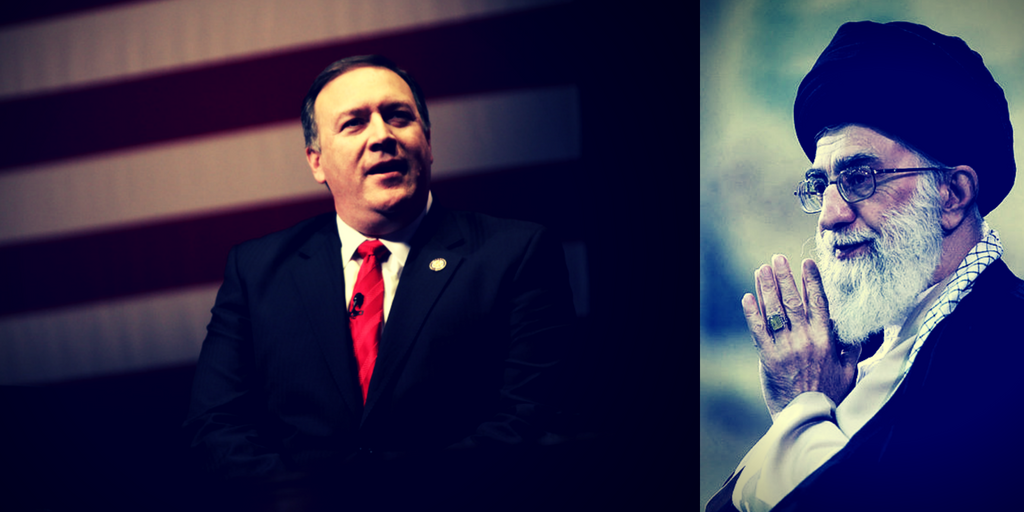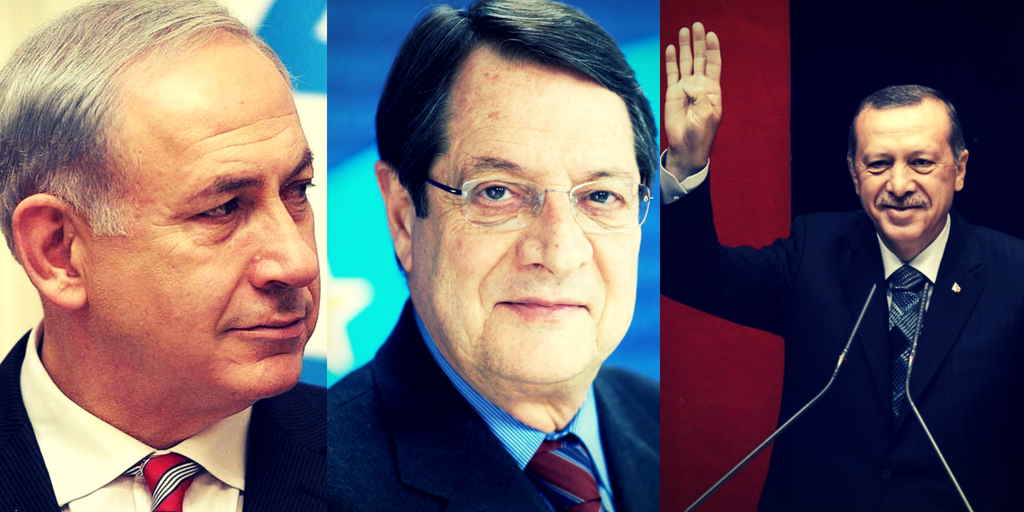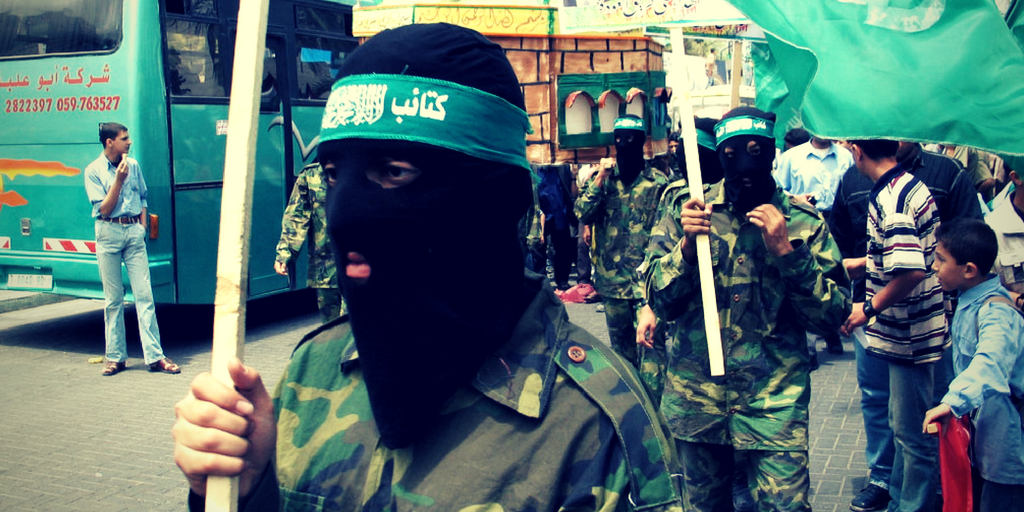Nothing could expose the true intent of the Judeocidal riots on Gaza border more than the Nazi-style swastikas on incendiary kites flown into Israel to set Jewish property (& if possible, Jewish people) ablaze.
Hamas supporters in Gaza held the world’s first peaceful protest with hand grenades, pipe bombs, cleavers and guns. Ten explosive devices were peacefully detonated. There were outbursts of peaceful gunfire and over a dozen kites carrying firebombs were sent into Israel where they started 23 peaceful fires. And Israeli soldiers peacefully defended their country leaving multiple Hamas attackers at peace – Daniel Greenfield, Frontpage Mag, May 15, 2018.
“We will tear down the border and we will tear out their hearts from their bodies.” Yahya Sinwar, Head of Hamas, clarifying the peaceful intent of the rioters on the Gaza border, April 6, 2018.
Nothing could expose the true intent of the Judeocidal riots on the border with Gaza more than the Nazi-style swastikas, brazenly emblazoned on many of the dozens of incendiary kites flown into Israel with the purposeful intent of setting Jewish property—and if possible, Jewish people—ablaze.
Yet, despite the blatantly violent nature of the mob activity on, and around, the border, and the bloodcurdling exhortations of the Gazan leadership to butcher Jews, Israel is being excoriated in international forums for allegedly using uncalled for lethal force to prevent its borders being breached by a manifestly homicidal horde.
Crucible, not victim
Indeed, one needs little imagination to envision the gory consequences, if only a few score of frenzied fanatics—perversely dubbed “protesters”—were to breach the fence and break into a nearby Jewish community. There is little doubt that they would butcher the residents, ravage the women and raze the properties. After all, this is precisely what their leaders urged them to do.
Thus, a week before the head of Hamas had urged the Gazans “to tear out their [the Jews’] hearts from their bodies”, he shifted his anatomical focus somewhat, and called on them to “eat the livers” of Jews across the border.
One can only image the outcry had any Israeli leader used such gruesome rhetoric vis-à-vis the Palestinian-Arabs. But when used by the Arabs against the Jews—nary a muted squeal of protest! Is it just me or is that a blatant display of the soft bigotry of low expectations?
Two flimsy excuses are being bandied about in the mainstream media for the ongoing displays of hostility at the Gaza border.
Both portray the inhabitants of Gaza as victims – either (a) as victims of their leadership and/or (b) as victims of Israel’s repressive blockade of the hapless enclave.
With regard to the former, the Gazans are not the blameless victims of their leadership.
Quite the opposite!
They are the very crucible in which that leadership was formed, and from which it emerged.
To underscore this, a poll, conducted less than a year ago by a leading Palestinian survey institute, found that 85% of Gazans supported maintaining payments to “security prisoners” (read “jailed terrorists”), who have murdered countless Israelis in cold blood.
Israeli sympathies for the Gazans should, therefore, be tailored to these sentiments.
Confounding cause with consequence
Indeed, an up-to-date poll, conducted this month by the same Palestinian institute, showed that the Gazans display little remorse for their election of Hamas. Thus, according to its findings, in a future presidential election, Hamas’s Ismail Haniyeh would trounce incumbent Mahmoud Abbas of Fatah by almost two-to-one!
These revealed preferences of the Gazan public bring us to the other purported “victimhood” claim regarding Israel’s security quarantine.
The refrain currently being aired is that the violence manifested at the border is the result of pent up frustration of the public over the dire socio-economic conditions that prevail in the Gaza Strip: Largely undrinkable water, perennial power outages, raw sewage overflows and polluted beaches. The blame for this dismal condition is being laid at Israel’s doorstep for the alleged restrictions it imposes on the Gazan economy. Thus, according to this so-called “reasoning”, the only solution is the lifting, or at least the loosening, of the quarantine to alleviate the despair and desperation of the impoverished and suffering populace.
However, it is demonstrably and indisputably clear that the imposition of the quarantine on Gaza is the consequence—not the cause—of Arab enmity towards Israel.
It is the result of, not the reason for, the Judeophobic incitement and the Judeocidal aggression that have become the hallmark of Gaza ever since Israel unilaterally evacuated the enclave, well over a decade ago—and recently so irrefutably illustrated by the swastikas flying over the enflamed mob, chanting slogans calling for the slaughter of the Jews and destruction of their state.
Incipient anti-Semitism: Expecting Jews to die meekly
Accordingly, since the security quarantine was instituted to protect Jews from Arabs who sought to kill them, the demands to have it removed, or made less thorough in discharging that function, are inherently anti-Semitic. For the unavoidable significance of these demands is to undermine the ability of the Jews to defend themselves against those who would eagerly slaughter them—and as such, are in effect, a call for Jews to die meekly, or, at least, not to overly inconvenience their would-be murderers.
Moreover, the calls for increased humanitarian aid are a deceptive “red herring”—either maliciously misleading or naively misguided.
Indeed, for years, Gaza has been the recipient of massive humanitarian aid—reportedly among the highest per capita on the planet—both from international sources and Israel. Israel routinely—some might say, perversely—allows in thousands of trucks weekly, laden with merchandize to improve the welfare of a population, which if it could, would tear its citizens limb from limb—“rip out their hearts” and “eat their livers”, to reiterate the exhortations of their leadership.
However, regrettably and routinely, the bulk of humanitarian aid is promptly expropriated by Hamas for its own nefarious purposes and for lining its own nest—and those of complicit cronies.
Thus almost inevitably, any easing of current security restrictions would be exploited by terror organizations—as has been the case in the past—to perpetrate further assaults on Israelis.
Current humanitarian aid perpetuates the conflict
The socio-economic plight is neither the result of scarcity of cash nor of any lack of largesse on the part of Israel. To the contrary, the Gazans have enjoyed a plethora of both. Both have been purposely misused.
Indeed, it would take an exceptionally contorted mind to believe that Israel was investing huge effort and treasure in constructing a multi-billion shekel barrier—over 20 foot high above ground and 130 foot deep below ground—described by IDF Chief of Staff, Gadi Eizenkot as the “largest project” ever carried out in Israel’s military history, merely to make Gazans more miserable rather than to make Israelis more secure.
After all, the dominant (albeit, mistaken) view in Israel’s political and military Establishment is that a prosperous Gaza, which, it is presumed, will also be peaceful, is an Israeli interest. Accordingly, Israel should endeavor to prevent economic meltdown in the Strip.
This is a grave error.
Gaza has descended to its current depths not because of a dearth of dollars, or a deficit of Israeli good-will—but because of the brutal and dysfunctional nature of its society. Greater funding and more Israeli leniency will not remedy that malaise. To the contrary, they will only exacerbate it.
Worse—it will only prolong the conflict, increase the toll of casualties, allow the enemy to enhance its capabilities and extend the suffering it was designed to end.
“…a traumatic scar on collective Arab memory…”
In October 2000, close on two decades ago, just after the outbreak of what has become known as the “Second Intifada”, I wrote a (Hebrew) opinion column, in which I warned: “the current outbreak of violence will not end without the use of massive military might that will leave a traumatic scar on the collective national memory of the Arabs”.
Today, almost two decades later, Israel is suffering the result of its unexplained—and seemingly inexplicable—reticence to use its overwhelming military dominance to achieve strategic victory over its far weaker adversaries—and lasting security for its own population.
Thus, in the North, it has allowed Hezbollah to exploit periods of calm to develop from a small guerilla group of mainly nuisance value, into a significant strategic threat, with well over 100,000 missiles, many of them precision guided, capable of hitting virtually any target—military or civilian—in the country.
Similarly, when Israel pulled out unilaterally from Gaza, the most formidable weapon Hamas had was a primitive rocket with a 5 kg explosive charge and a range of 5 km. Today, it has enhanced its capabilities beyond anything imaginable then—with not only missiles having ranges up to 100 km and warheads of 100kg, but a maze of underground attack tunnels, naval forces, and is developing its expertise in drones.
Thus, although the Gazans have failed miserably in developing the socio-economic foundations of their society, they have shown considerable initiative and creativity in developing means and methods of terror. Accordingly, it would be a grave error to underestimate the current threat of mass breaches of the border by murderous mobs. Indeed, the longer the attempts persist, the more likely they are to develop new tactics and the means to challenge IDF counter measures.
Decades of dereliction of diplomatic duty
But beyond the gravely detrimental operational implications involved in letting the violence at fence drag on, the implications in the diplomatic field are even more disturbing.
For as we have seen in the past, even if Israel does enjoy sympathy at the start of some violent encounter (like the 2006 offensive against Hezbollah), this is quickly eroded away as time draws on. Indeed, prolonged clashes allow Israel’s detractors to mobilize, concoct anti-Israel fabrications, garner support for fallacious accusations of “disproportionate” use of force and portray its adversaries as the blameless victims of the “Zionist ogre”.
But to give the IDF the freedom of action it requires to terminate the current threat permanently—or at least, for any foreseeable future—it needs diplomatic cover.
It is here that Israel has been derelict for decades in discharging its diplomatic duty—both quantitatively (in terms of resources allocated) and qualitatively (in terms of the objectives defined).
With regard to the former, Israel has been appalling miserly in the resources it has allotted to strategic diplomacy—if that concept was at all relevant in the country’s strategic planning. It has allocated literally miniscule sums to advance its case on the international stage and to undermine that of its detractors/adversaries.
As I have pointed out repeatedly, if Israel would apportion a mere 1% of state budget for a strategic public diplomacy offensive, this would make well over a billion dollars available for this purpose.
Indeed, unless one is convinced that deceit and deception are preordained to prevail over truth and justice, I am sure, even the skeptical would concede that with over a billion dollars, Israel could change a lot of minds and win a lot of hearts.
This then, is the first step in quelling the violence in Gaza.
General context, not event–specific endeavor
With regards to the latter (qualitative) aspect, the principal focus of Israel’s diplomatic effort must not be on trying to explain/justify ex-post specific events—after they have taken place. Rather it must endeavor to redefine, ex-ante, the general context in which those specific events are perceived and interpreted.
This distinction is crucial—for the same event can be interpreted in very different ways depending on the context in which they are seen. After all, if Israel is persuasively portrayed as a lone democracy, valiantly striving to maintain western values in a surrounding sea of tyranny and theocracy, its actions are far more likely to win approval than if it allows itself to be presented as a cruel and avaricious behemoth, trampling the rights of the deprived indigenous natives. Likewise, the Palestinians are far less likely to receive international sympathy if they are—accurately—depicted, not as the victims of some brutal colonial interloper, but as comprising a cruel backward society, bent on nothing less than the extermination—or at least the subjugation—of the “Other”.
It is difficult to overstate the practical importance of this. For unless Israel can transform the context in which events—such as dealing with the homicidal thugs on the Mavi Marmara, or the murderous mobs massing on its borders—are perceived, it will never be able to provide its military the chance to achieve any lasting strategic solution to the threats the nation faces.
This is a topic to be elaborated on in future columns. Until then, it would be just as well to keep in mind the theme Netanyahu articulated several times this week: Policy should be based on truth.

